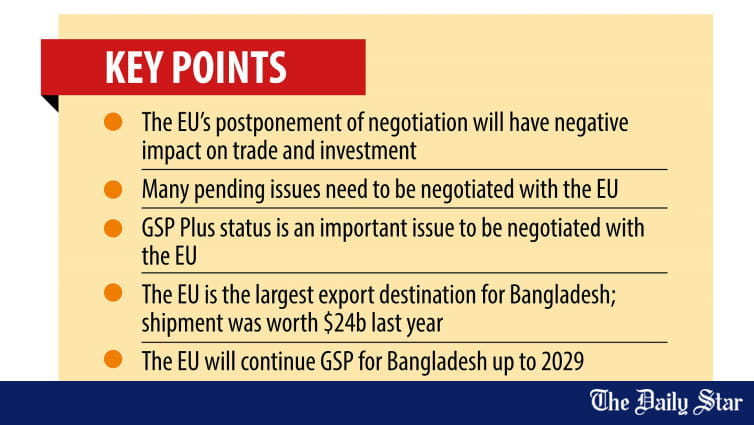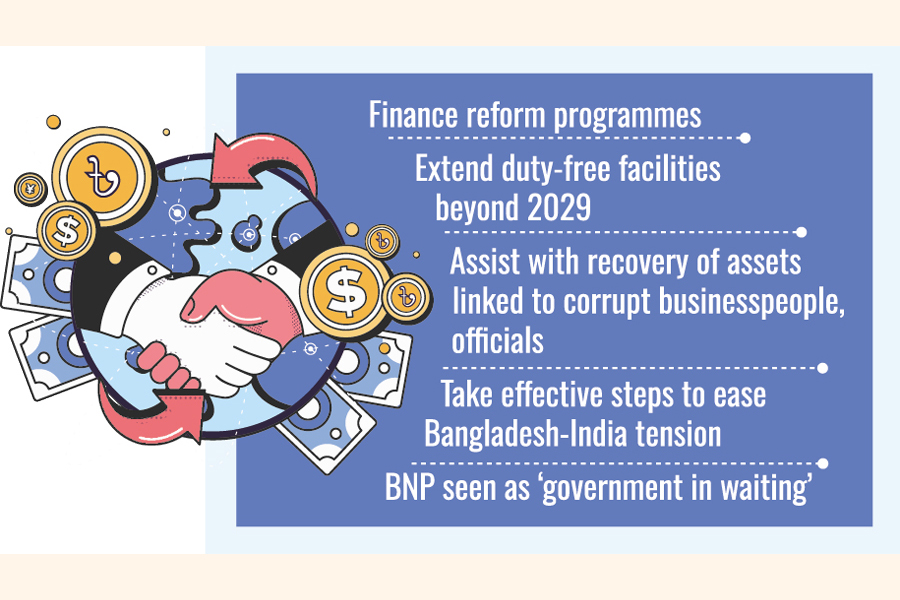Saif
Senior Member
- Joined
- Jan 24, 2024
- Messages
- 15,397
- Reaction score
- 7,865
- Points
- 209
- Nation

- Residence

- Axis Group

50 years of Bangladesh-EU relations
A thriving partnership throughout the decades

1973 was an eventful year. The Watergate scandal, the end of the war in Vietnam and the international oil price crisis following the Yom-Kippur-war all took place in 1973. The European Union (EU) saw its first enlargement, increasing its number from six members to nine. Furthermore in 1973, the EU established relations with a country that had just gained independence two years earlier: Bangladesh. This newly founded state, which had around 67 million inhabitants at the time, organised its first general election in the same year and also joined the movement of non-aligned countries.
Half a century later, Bangladesh almost tripled its population and following the great economic progress of the recent decade is now being heralded as a "new Asian tiger". Meanwhile, the EU expanded to 27 Members and today represents the largest single market area in the world. It also remains the most highly integrated regional organisation with 448 million people united in cultural diversity.
The advancements in Bangladesh-EU relations have reflected these spectacular developments: in 2001 the EU-Bangladesh cooperation agreement was signed which laid the foundation of trade relations with the European Union that provided Bangladesh duty-free access to the Union market under the Everything But Arms (EBA) initiative. EBA played a crucial role for Bangladesh in becoming the European Union's largest trading partner - today, more than half of Bangladesh's exports go to the EU, and the country recently even overtook China as the biggest exporter of garments into Europe.
Cooperation has intensified over the years and now includes new priorities such as climate change and green energy, but increasingly also a security dimension. The pandemic, which hit neighbouring countries hard, was well managed by Bangladesh. The vaccination rate, supported by a 250 million EU loan for procuring Covid-19 vaccines, was among the highest in the region and economic growth remained close to an impressive 7 per cent. In 2022, Bangladesh-EU relations reached a new pinnacle with the first ever political dialogue being held between the two sides, cementing these and future areas of cooperation, such as Bangladesh's participation in the EU CRIMARIO project to improve maritime security and safety in the Wider Indian Ocean.
To read the rest of the news, please click on the link below.
A thriving partnership throughout the decades
1973 was an eventful year. The Watergate scandal, the end of the war in Vietnam and the international oil price crisis following the Yom-Kippur-war all took place in 1973. The European Union (EU) saw its first enlargement, increasing its number from six members to nine. Furthermore in 1973, the EU established relations with a country that had just gained independence two years earlier: Bangladesh. This newly founded state, which had around 67 million inhabitants at the time, organised its first general election in the same year and also joined the movement of non-aligned countries.
Half a century later, Bangladesh almost tripled its population and following the great economic progress of the recent decade is now being heralded as a "new Asian tiger". Meanwhile, the EU expanded to 27 Members and today represents the largest single market area in the world. It also remains the most highly integrated regional organisation with 448 million people united in cultural diversity.
The advancements in Bangladesh-EU relations have reflected these spectacular developments: in 2001 the EU-Bangladesh cooperation agreement was signed which laid the foundation of trade relations with the European Union that provided Bangladesh duty-free access to the Union market under the Everything But Arms (EBA) initiative. EBA played a crucial role for Bangladesh in becoming the European Union's largest trading partner - today, more than half of Bangladesh's exports go to the EU, and the country recently even overtook China as the biggest exporter of garments into Europe.
Cooperation has intensified over the years and now includes new priorities such as climate change and green energy, but increasingly also a security dimension. The pandemic, which hit neighbouring countries hard, was well managed by Bangladesh. The vaccination rate, supported by a 250 million EU loan for procuring Covid-19 vaccines, was among the highest in the region and economic growth remained close to an impressive 7 per cent. In 2022, Bangladesh-EU relations reached a new pinnacle with the first ever political dialogue being held between the two sides, cementing these and future areas of cooperation, such as Bangladesh's participation in the EU CRIMARIO project to improve maritime security and safety in the Wider Indian Ocean.
To read the rest of the news, please click on the link below.












